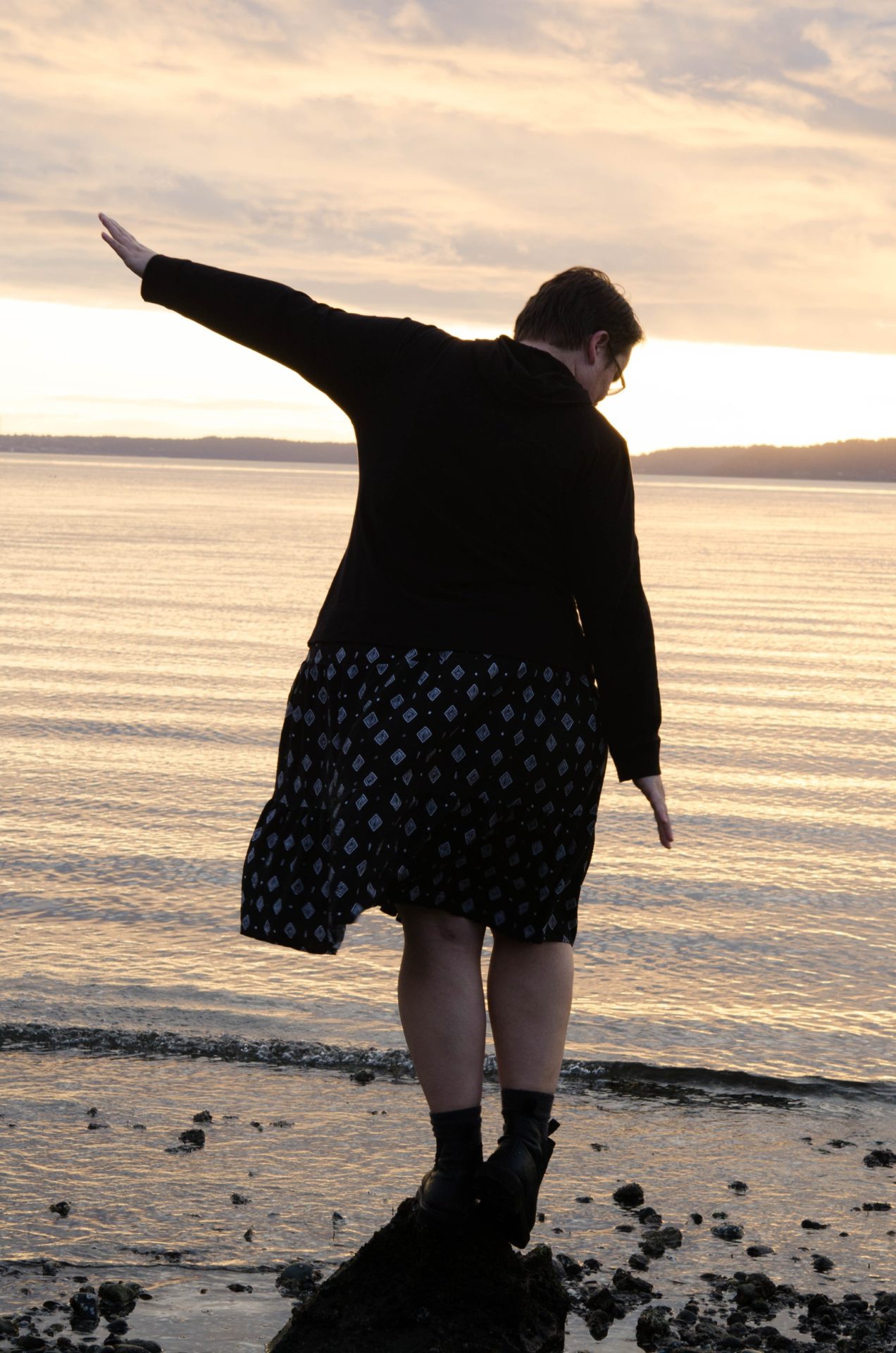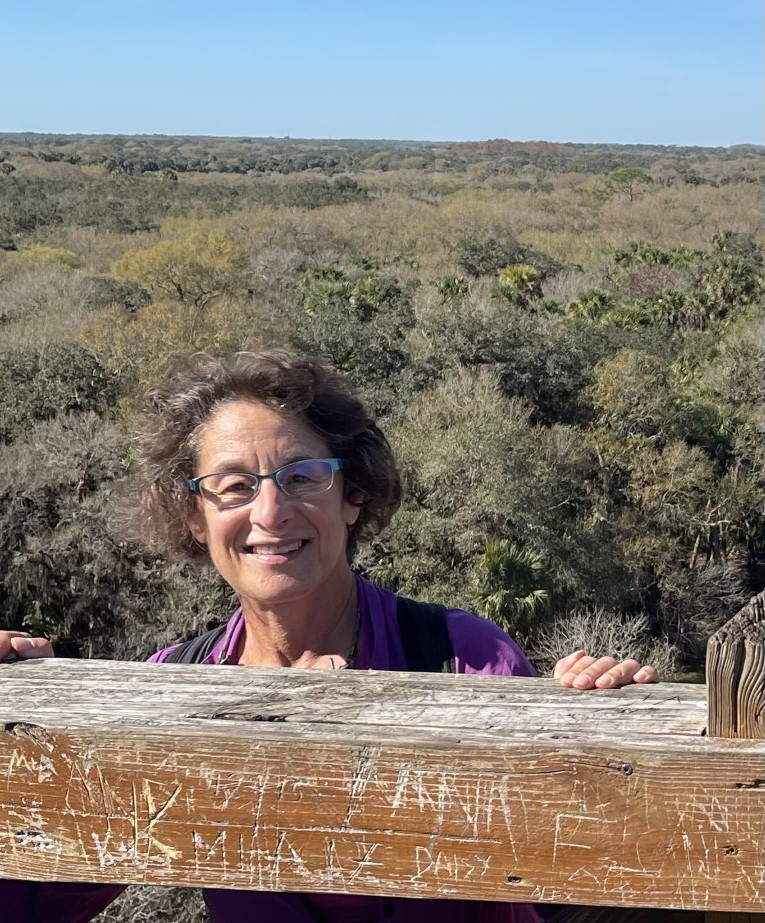Anne Shaffer is the Executive Director & Lead Scientist of the Coastal Watershed Institute. I…
Maria Anderson Shares Her Water Story

Maria is the Farm Manager at Elk Run Farm which grows fruits, vegetables, and herbs for the 13 food banks of the South King County Food Coalition. Located on 4.5 acres of an old golf course in suburban Maple Valley, WA, the farm uses a mix of education, volunteer work, and community partnerships to help increase food security across the region.
My entire life has been shaped by water. Growing up in the high desert of Montana, I reveled in any rain we got, since most of our 15 inches of precipitation came as snowfall in the winter. Some of my fondest childhood memories are tied to water: making an earthworks waterfall and river with sticks, rocks, and leaves as a child running free in my neighborhood; wading out with my mother into freezing knee deep water after a summer thunderstorm to clear the drains of the cottonwood leaves that were violently stripped from the trees lining our street; playing with my brother for hours on a floating fallen tree in the slow, muddy river an hour from our house while my father fished downstream.
Now I live outside Seattle and I am a vegetable farmer. I have never farmed anywhere else, so the weather here is so ingrained in my life that I don’t have to think about it anymore. It has very practical consequences for me professionally. The constant rainfall in the winter means that ions get stripped out of the topsoil, making our soil acidic, so we add lime to balance the pH.
The rain usually stops in June and doesn’t come back until September. Once nature stops giving us water, we have to figure out how to get it ourselves. Vegetables need an inch of water a week, and every summer becomes a dance of increasing complexity to make sure that all the plants get enough water at the right times.
As the climate gets more unpredictable, all the inherent challenges of farming are amplified. Warmer winter temperatures mean less snow pack, which means less water in our rivers to support ecology and agriculture. Drier summers mean wildfires, which means smoke in the air that has already led to the deaths of farm workers in Washington. Cold snaps, extra flooding, increasing development pressure, and invasive pests, weeds, and disease all add unpredictable complexity to farming. Things are only going to get more complicated, so taking steps now to make sure that we steward and honor water and the roles it plays in all aspects of life on earth, is absolutely critical.
My favorite watershed in Washington is the Green River. I have lived, worked, and recreated through it’s valley for the last seven years, and it is very underappreciated.
As the climate gets more unpredictable… Things are only going to get more complicated, so taking steps now to make sure that we steward and honor water and the roles it plays in all aspects of life on earth, is absolutely critical.
5.
Maria Anderson Shares Her Water Story



